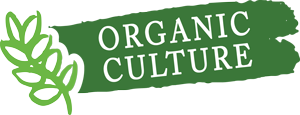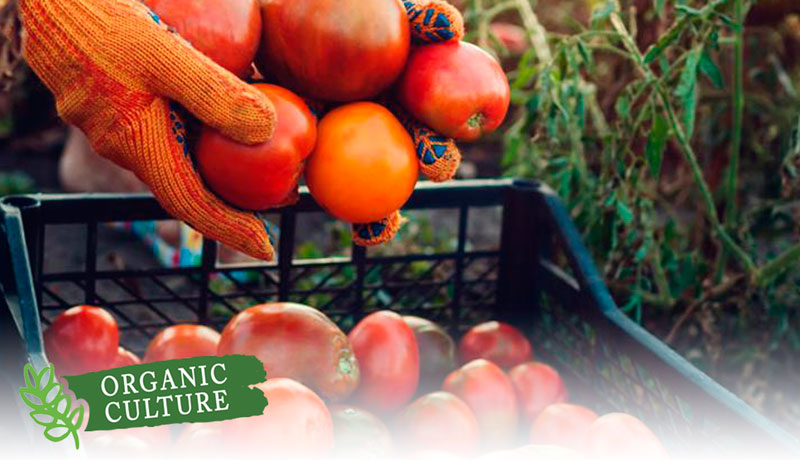Ontario has strict regulations in place to ensure that food produced and sold in the province is safe and of high quality. For those who wish to market their products as organic, the process of certification can be a bit more complicated. In order to be officially recognized as organic, farmers and producers must follow specific guidelines and undergo a certification process.
The first step in becoming certified organic in Ontario is to ensure that all farming practices meet the standards set out by the Canadian Organic Standards. This includes using only approved substances for pest control, fertilization, and other farming practices. Farmers must also keep detailed records of their farming practices to ensure compliance with these standards.
Once a farmer has met the requirements for organic farming, they can begin the certification process. This involves working with an accredited certification body to complete an application and submit to an inspection. If the inspector finds that the farm meets all of the requirements for organic certification, the farmer will be issued a certificate and can begin marketing their products as organic.
Certification Bodies
In Ontario, there are several certification bodies that producers can choose from to become organically certified. Each certification body has its own set of standards and requirements that producers must meet to obtain certification. Here are some of the certification bodies available in Ontario:
Canadian Organic Growers (COG)
Canadian Organic Growers (COG) is a non-profit organization that offers organic certification services to farmers and processors in Ontario. COG’s certification program is accredited by the Canadian Food Inspection Agency (CFIA) and meets the standards set by the Canadian Organic Standards (COS).
COG’s certification process involves an initial inspection of the farm or processing facility, followed by annual inspections to ensure ongoing compliance with the COS. COG also requires producers to submit an organic management plan, which outlines the steps they will take to maintain organic practices on their farm.
Ecocert Canada
Ecocert Canada is another certification body that offers organic certification services to producers in Ontario. Ecocert Canada is accredited by the CFIA and meets the standards set by the COS.
Ecocert Canada’s certification process involves an initial inspection of the farm or processing facility, followed by annual inspections to ensure ongoing compliance with the COS. Ecocert Canada also requires producers to submit an organic management plan, which outlines the steps they will take to maintain organic practices on their farm.
Organic Council of Ontario (OCO)
The Organic Council of Ontario (OCO) is a non-profit organization that offers organic certification services to farmers and processors in Ontario. OCO’s certification program is accredited by the CFIA and meets the standards set by the COS.
OCO’s certification process involves an initial inspection of the farm or processing facility, followed by annual inspections to ensure ongoing compliance with the COS. OCO also requires producers to submit an organic management plan, which outlines the steps they will take to maintain organic practices on their farm.
In conclusion, producers in Ontario have several certification bodies to choose from when seeking organic certification. Each certification body has its own set of standards and requirements, so it is important for producers to research their options carefully and choose a certification body that best meets their needs.
Organic Standards
To become certified organic in Ontario, producers must adhere to specific organic standards. These standards are designed to ensure that organic products meet certain requirements and are produced in an environmentally sustainable and socially responsible manner.
Canadian Organic Standards (COS)
The Canadian Organic Standards (COS) are the national standards for organic agriculture in Canada. These standards provide a set of guidelines and requirements that producers must follow to become certified organic. The COS cover a range of topics, including soil fertility, pest and weed management, animal welfare, and food safety.
To become certified organic under the COS, producers must work with a certifying body that is accredited by the Canadian Food Inspection Agency (CFIA). The certifying body will inspect the farm and verify that the producer is meeting all of the requirements of the COS.
Organic Products Regulations (OPR)
The Organic Products Regulations (OPR) are federal regulations that establish a framework for the certification of organic products in Canada. The OPR apply to all organic products that are sold across provincial or international borders, including fresh and processed foods, livestock, and crops.
Under the OPR, all organic products must be certified by a CFIA-accredited certifying body. The certifying body will verify that the product meets all of the requirements of the COS and the OPR. Products that are certified organic will carry the Canada Organic logo, which is a symbol of the product’s authenticity and quality.
In summary, the Canadian Organic Standards and the Organic Products Regulations are the two key standards that producers must follow to become certified organic in Ontario. By adhering to these standards, producers can ensure that their products are produced in an environmentally sustainable and socially responsible manner, and that they meet the high standards of the organic industry.
Certification Process
To become certified organic in Ontario, producers must follow a specific process. This process involves several steps, including application, inspection, and certification decision.
Application
The first step in the certification process is to complete an application form. This form is available online or can be obtained from the certification body. The application form requires detailed information about the farm, including the type of operation, the crops or livestock produced, and the land area used for farming.
In addition to the application form, producers must also submit a detailed organic production plan. This plan outlines the practices and procedures that will be used to produce organic products, including soil management, pest control, and livestock care.
Inspection
Once the application has been received and reviewed, an inspection is scheduled. The inspection is conducted by a qualified inspector who will visit the farm to verify that the organic production plan is being followed. During the inspection, the inspector will review records, observe farming practices, and take samples for testing.
Certification Decision
After the inspection, the certification body will review the inspection report and make a certification decision. If the farm meets the organic standards, the certification body will issue an organic certificate. If the farm does not meet the standards, the certification body will provide a detailed report outlining the deficiencies that need to be addressed.
It is important to note that organic certification is an ongoing process. Producers must continue to follow organic practices and undergo annual inspections to maintain their certification.
Certification Costs
Becoming certified organic in Ontario can be a costly process. The certification costs are determined by the certification body and vary depending on the size and complexity of the operation.
Certification costs can be broken down into two main categories: application fees and annual inspection fees. Application fees are a one-time cost that is paid when the producer applies for certification. The fees cover the cost of reviewing the application and conducting an initial inspection.
Annual inspection fees are paid each year to maintain certification. The fees cover the cost of conducting annual inspections and ongoing compliance monitoring. The fees are based on the size and complexity of the operation, and can range from a few hundred dollars to several thousand dollars per year.
In addition to certification fees, producers may also incur additional costs associated with maintaining organic certification. These costs may include record-keeping, testing, and additional equipment or supplies.
It is important for producers to carefully consider the costs associated with organic certification before beginning the process. While the costs may be significant, the benefits of organic certification can be substantial, including access to premium markets and increased consumer demand for organic products.
Conclusion
In conclusion, obtaining organic certification in Ontario can be a complex process, but it is essential for producers who wish to market their products as organic. The certification process involves strict adherence to organic farming standards and regulations set out by the Canadian Organic Standards.
Producers must first ensure that their farming practices meet the requirements for organic certification. This includes using organic seed and feed, avoiding the use of synthetic fertilizers and pesticides, and implementing sustainable farming practices. Once these requirements are met, producers can apply for certification through one of the accredited certification bodies in Ontario.
During the certification process, producers will be subject to regular inspections and audits to ensure that they continue to meet organic standards. This process can be time-consuming and costly, but it is necessary to maintain the integrity of the organic certification system.
Overall, obtaining organic certification in Ontario requires a significant investment of time and resources, but it can provide a competitive advantage for producers who wish to market their products as organic. By following the guidelines set out by the Canadian Organic Standards and working with an accredited certification body, producers can ensure that their products meet the high standards of organic certification in Ontario.

